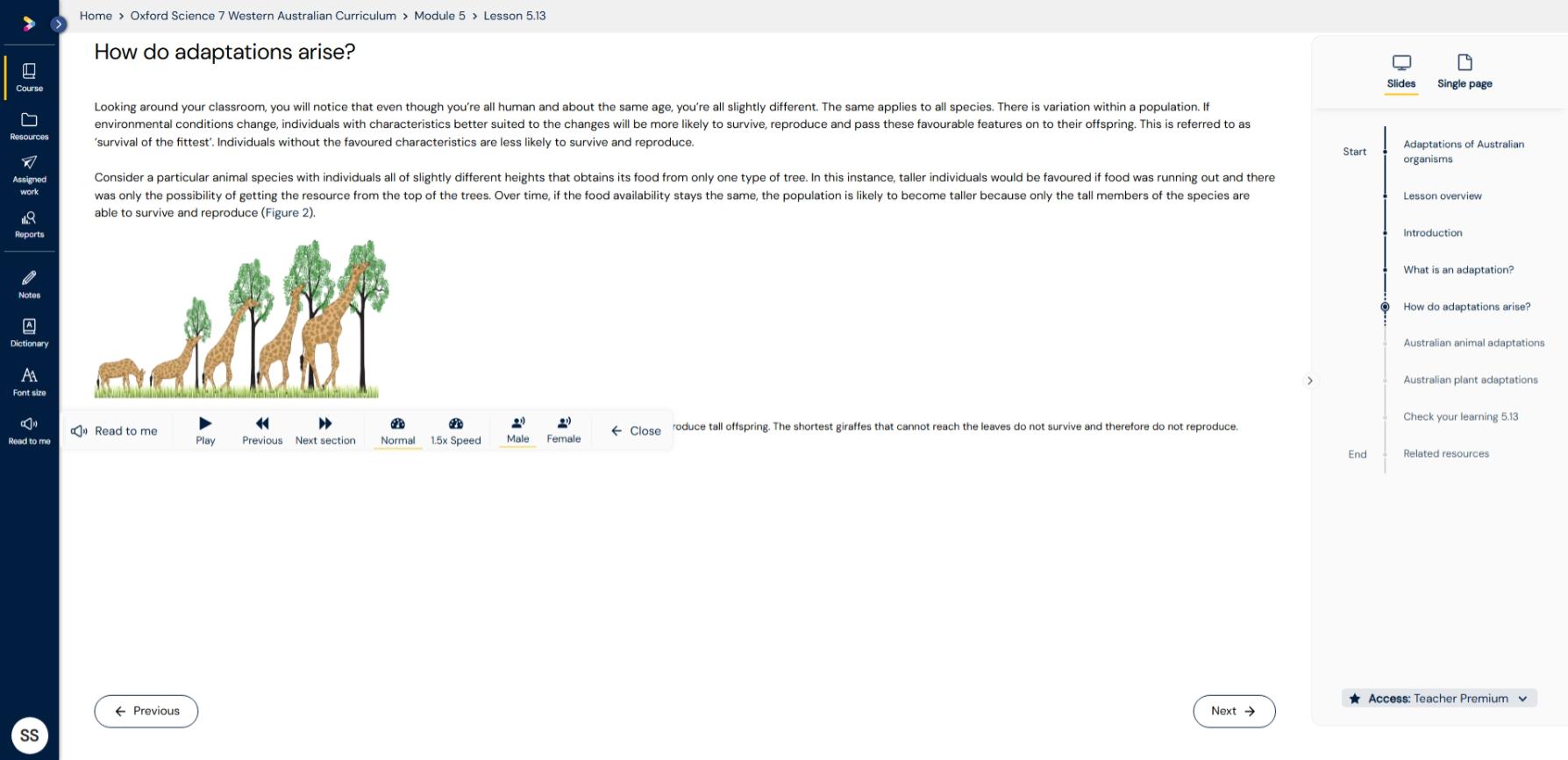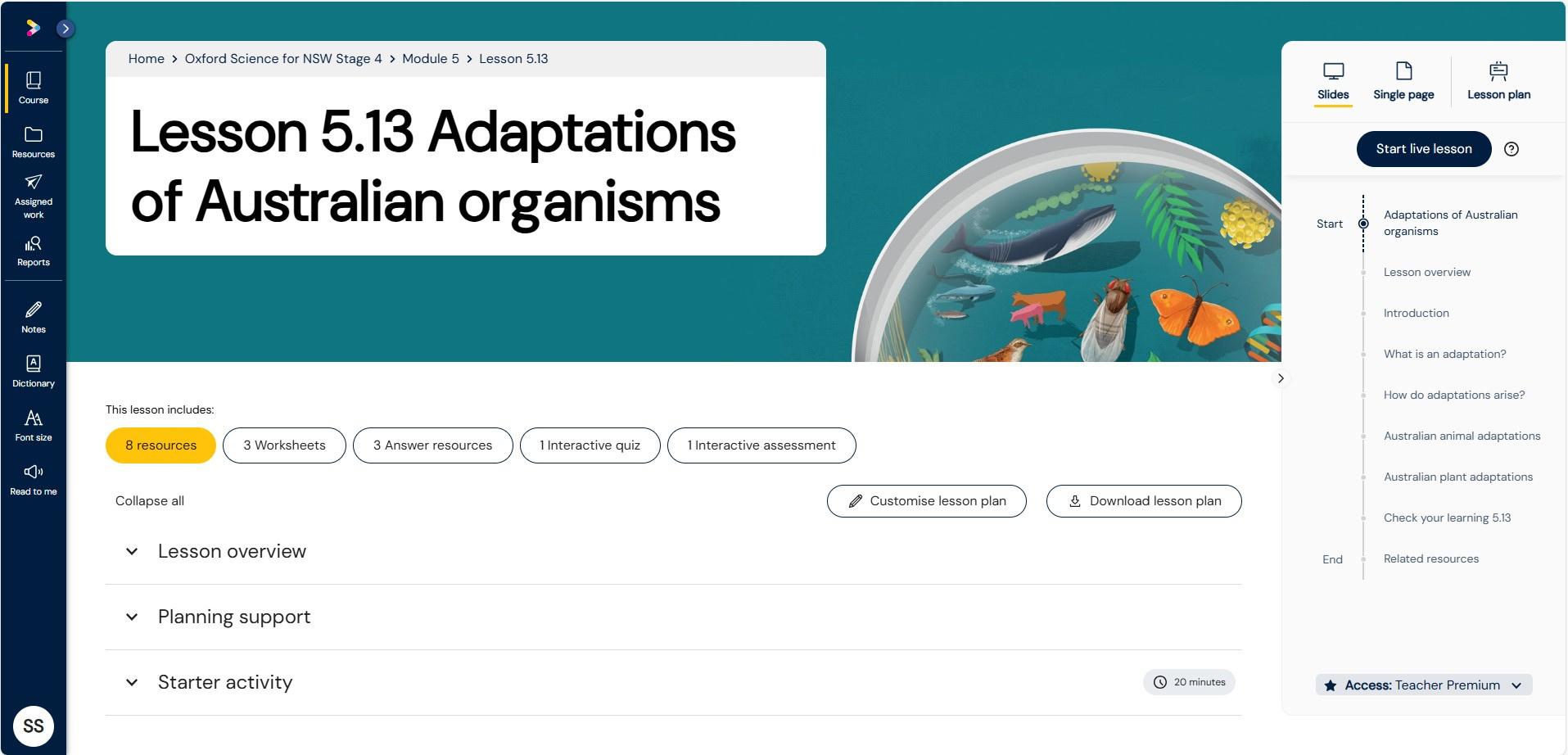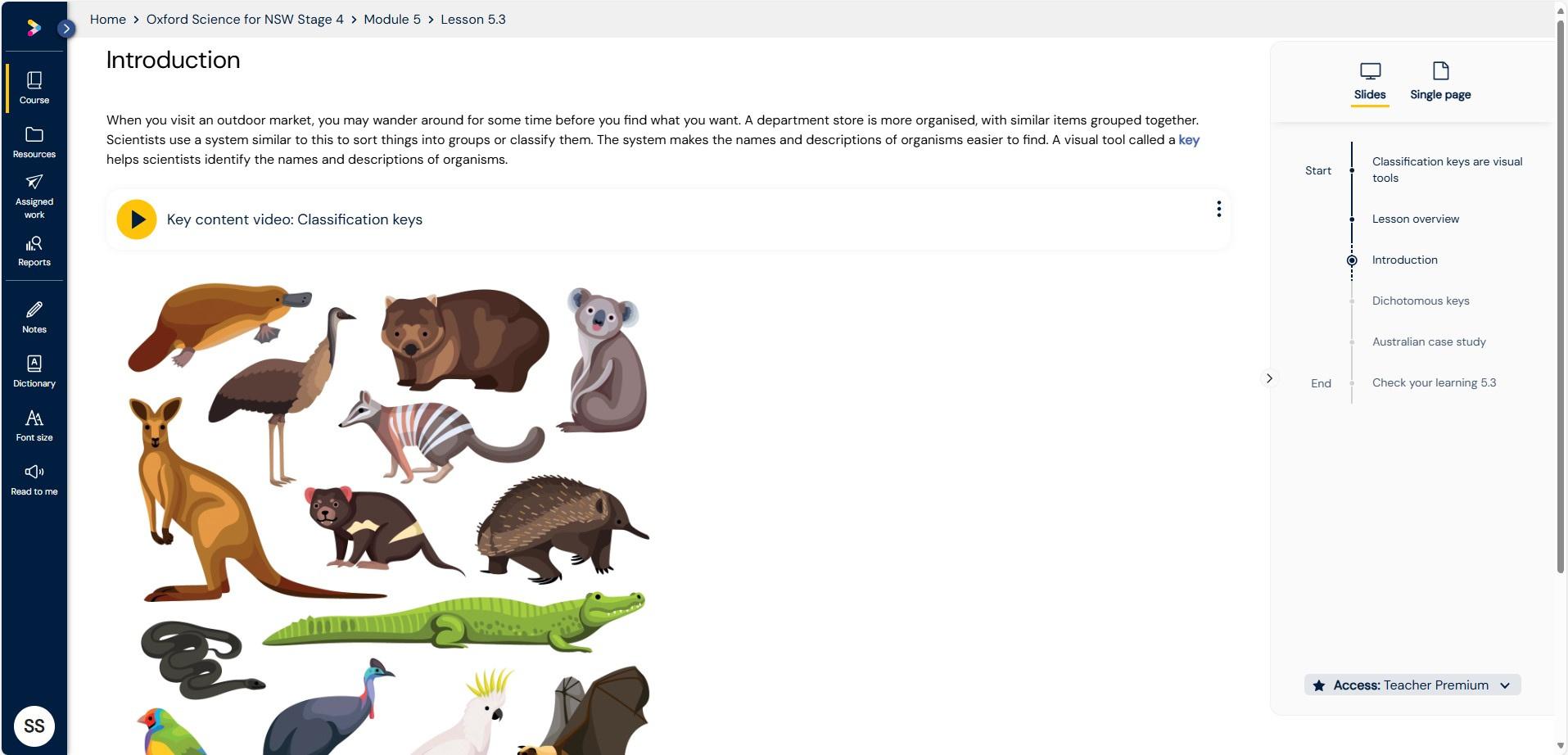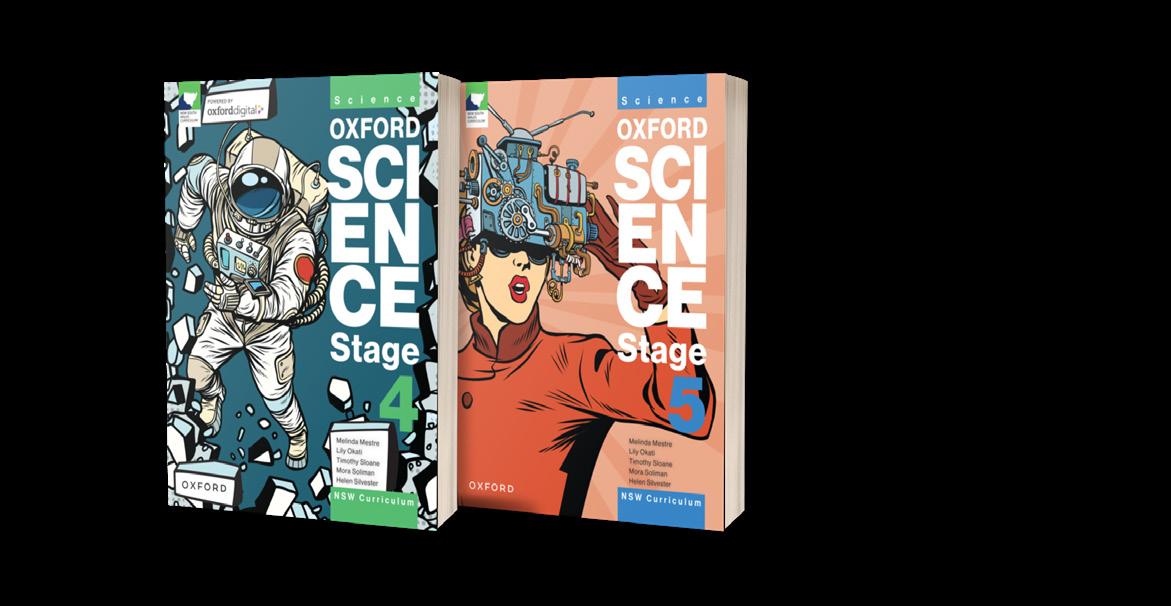New South Wales




This guide has been produced by the expert team of science teachers, authors, and learning designers at Oxford University Press ANZ. It contains a clear, concise summary of the key changes to structure and content of the NSW Science 7–10 Syllabus and is designed to save you time and help you plan and implement the new syllabus with confidence
The new Science 7–10 Syllabus was finalised in 2024.
• The Science 7–10 Syllabus prioritises the development of students’ scientific literacy. Students learn through observation, experimentation, critical analysis and creative thinking and are equipped with the tools required to investigate phenomena, make predictions and solve problems.
• The syllabus integrates knowledge and skills across different science disciplines. This enables students to make connections and deepen their scientific understanding. Topics such as data science, pseudoscience and climate change emphasise ethical evidence-based decision-making and provide strong alignment between science and mathematics.
• The syllabus highlights real-life applications of science that encourage students to explore relevant contexts. The inclusion of Depth Studies provides students with the opportunity for deeper learning in areas of personal interest.
• The knowledge and understanding content in the previous curriculum was organised into four strands: Physical World (PW), Earth and Space (ES), Living World (LW) and Chemical World (CW).
• The new curriculum has been organised into focus areas, which represent the interdisciplinary nature of science.
• The focus areas Data Science 1 and Data Science 2 are new content for Science 7–10. Some teachers may need professional learning to teach and assess this content.
• Depth studies now mandatory with clear guidelines for implementation, assessment, and inquiry focus
• At least 50% of the course time should be allocated to scientific investigations, including time allocated to investigations during depth studies.
The importance of working scientifically has been highlighted by NESA across all focus areas.
Observing the Universe
Forces
Cells and classification
Solutions and mixtures
Living systems
Periodic table and atomic structure
Change
Data science 1
Energy
Disease
Materials
Environmental sustainability
Genetics and evolutionary change
Reactions
Waves and motion
Data science 2
Depth Study (from one or more focus areas)
Feature
Old Syllabus
Structure Organised into strands: Physical World, Chemical World, Living World, Earth & Space
New Syllabus
Organised into 16 interdisciplinary focus areas that transcend traditional boundaries, promoting a more integrated understanding of science e g : Change, Sustainability, Living Systems, Observing the Universe
Skills Working Scientifically embedded across all strands
Inquiry emphasis
Strong inquiry focus but embedded
Depth studies
Optional
Data science Not explicitly mentioned
Cross-curriculum priorities
Literacy/Numeracy
Stem integration
Encouraged but not required
Scientific Investigation explicitly taught through standalone and integrated content
Stronger emphasis, more explicit teaching of inquiry, including questioning, designing, analysing
Mandatory Depth Studies introduced to deepen understanding and promote student-led exploration
Data Science included as a new content focus area in Stage 4 (e g collecting, visualising, analysing data)
Explicit integration of Aboriginal and Torres Strait Islander knowledge, sustainability, etc.
Emphasised through scientific writing and data analysis
Encouraged through investigations
More explicitly integrated in lesson outcomes and tasks
More structured, with a clear link between science concepts and realworld STEM applications
What’s been added?
Supporting materials: Data book is provided (periodic table, mathematical formula, chemical data, geological time scale)
Data Science 1: Introduces students to data collection, analysis, and interpretation skills
What’s been added?
Organic chemistry and climate change content
Supporting materials: Data book is provided (periodic table, mathematical formula, chemical data, geological time scale)
What’s been moved?
Atomic structure, plate tectonics, and ecosystems [Moved from Stage 4]
What’s been removed?
Electrical circuits
Acids and bases, pH
Nuclear reactions (radioactivity)
Disease transmission
Rock cycle, minerals
We are currently developing a new edition of Oxford Science 7–10 for the New South Wales Syllabus, as well as a host of supportive resources that will be arriving for implementation in 2026.
This new edition will be hosted on our brand-new Oxford Digital platform, updated to improve usability and accessibility so you can engage students of all abilities and save time in planning and delivering lessons.


Connect with every student with all core content now on our new accessible platform - adjust font sizes, enable read-to-me functionality, and customise content views for diverse learning needs.

Track progress with quick, syllabus-aligned check your learning quizzes that provide instant feedback.

Revolutionise your classroom planning with lesson plans written by experts and accessed at the beginning of each lesson


Engage students with key content videos developed with Clickview
All of our content and resources have been written by experts, ranging learning designers with industry-leading expertise to Heads of Science and many more experienced classroom teachers.
Content has been carefully mapped to the curriculum to ensure that anything you’re teaching in the classroom can be reported against syllabus outcomes and requirements.
Teaching made easier. Progress made visible. Save time, boost engagement, and shape confident learners.
Oxford Science 7–10 has been designed for mixed-ability classrooms, supporting every student with scaffolded learning and an explicit focus on science inquiry skills. Teachers are supported with time-saving tools and resources – ensuring confident, effective teaching.
Save time and cover all curriculum requirements with best-practice TLAPs, lesson plans and clear curriculum alignment to resources.
Develop science inquiry skills with a series developed with an explicit focus on skills while working scientifically. Allow students to track their own progress and check their learning.


with a local education consultant oup.com.au/contact
Learn more and sign up for your sample trial.

Customer Support
Help Centre: oup.com.au/help
Free Call: 1300 650 616
Home-page: oup.com.au
Facebook: /oupanz
Instagram: @oxunipressanz